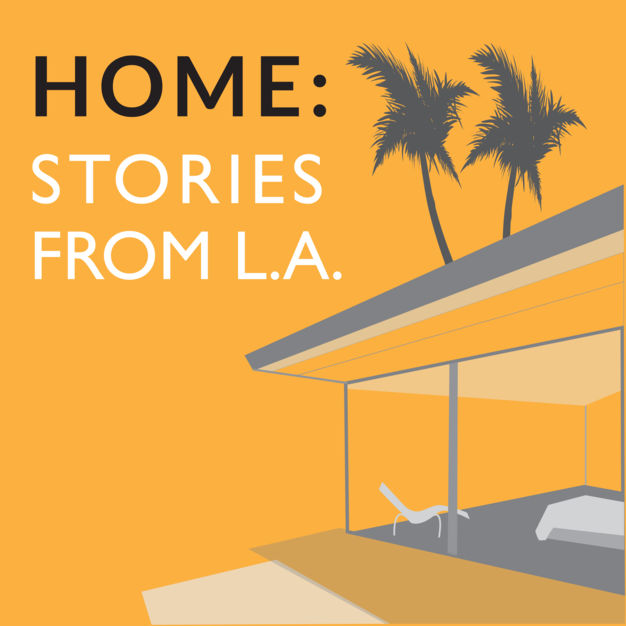
HOME: Stories From L.A.
What do we mean when we talk about home? A podcast from Bill Barol.
- 2 minutes 12 secondsGoodbye (for now)
I started this podcast in the fall of 2015 with a notion to tell stories of the many ways people think about home. For 27 episodes, that’s what I’ve done. I don’t think that going in I ever conceived HOME as a project that would go on in perpetuity, and now, in the fall of 2017, I’m finding that it’s reached the end of its natural lifespan. So I’m putting the show on an indefinite hiatus.
Producing this show has been one of the best and happiest experiences of my working life. I’ve learned so much about the world of podcasting, where there’s such excellent work being done by independent producers of all kinds, and about the place where since 1990, I’ve made my home. However you came to the show — whether it was via my friends and partners at Boing Boing, particularly Mark Frauenfelder, or through the flattering press the show received in LA Magazine, The Atlantic, The Christian Science Monitor and The NY Times — however you got here, I’m grateful that you did. I’m deeply appreciative for the early support from friends in the podcast community, like Devon Taylor, Harry Duran and Dan Lizette, and for the advice I’ve received from podcasters I admire, like Nate DiMeo of The Memory Palace. And to the people who’ve let me stick a mic in their faces and tell a version of their stories — my thanks as well.
One more thing.
Podcasting has enjoyed explosive growth over the two years I’ve done this show. It isn’t going anywhere. And neither am I. I have ideas for a couple of new series and I’m planning to bring at least one of them to you in 2018. They’re sort of like HOME, but also sort of not. I hope you’ll keep an eye peeled on the Facebook page or the Twitter feed, or you can follow my personal account at Twitter and I’ll keep you updated there.
Thanks for your support, thanks for listening, and I’ll see you with a new show in the new year.
“Jackie” and “Ah Clouds” are by the generous and talented Chad Crouch, a/k/a Podington Bear, whose music has been a big part of HOME.
27 November 2017, 9:41 pm - 16 minutes 48 secondsEpisode 26: Going Tiny
 HGTV and glossy magazines have sparked a boomlet of interest in tiny homes, but they’ve also made them look fun, cute and easy. The realities of a tiny lifestyle can be more daunting. Municipalities often don’t know what to make of tiny houses, and living in one legally is, in many places, challenging. There’s a lack of infrastructure for people who want to build them. And although they’re in many ways an imaginative solution to some of the most vexing urban housing issues, they don’t yet have a high profile in cities. Is there a place for tiny homes in Los Angeles? One woman thinks so, and has founded a collective of like-minded people to make it happen.
HGTV and glossy magazines have sparked a boomlet of interest in tiny homes, but they’ve also made them look fun, cute and easy. The realities of a tiny lifestyle can be more daunting. Municipalities often don’t know what to make of tiny houses, and living in one legally is, in many places, challenging. There’s a lack of infrastructure for people who want to build them. And although they’re in many ways an imaginative solution to some of the most vexing urban housing issues, they don’t yet have a high profile in cities. Is there a place for tiny homes in Los Angeles? One woman thinks so, and has founded a collective of like-minded people to make it happen.Learn more about LATCH Collective here, here and here.
Music:
- “Animal Fair,” by Trevor Thornton
- “Vinyl Baile,” by Podington Bear
- “Lleb,” by Podington Bear
- “Proliferate,” by Podington Bear
Top: Photo by Ben Chun: Creative Commons
Photo of Tessa Baker courtesy of LATCH Collective
18 August 2017, 12:05 am - 20 minutes 42 secondsEpisode 25: Lost Heroes and Miniature Histories
 “The best historians in L.A. are storytellers. They’re gangsters in east L.A., they’re ex-cons, they’re guys who worked in their garage their whole life, they’re guys who’ve worked at one business for forty years, people who’ve lived on one street for forty years… “
“The best historians in L.A. are storytellers. They’re gangsters in east L.A., they’re ex-cons, they’re guys who worked in their garage their whole life, they’re guys who’ve worked at one business for forty years, people who’ve lived on one street for forty years… ““All Night Menu” started with a question: What is a well-known photograph of William Faulkner not telling us about his time in Hollywood? Since then writer Sam Sweet has spent four years prowling LA for its most closely-held stories. The result is a lovingly-produced, meticulously-researched and gorgeously-written three volumes of the city’s secret history.
Top: Photo of the Maravilla handball court by Sam Sweet. Read Sam’s remarkable story on the Maravilla court in its entirety here.
Music:
- “Tangle,” by Blue Dot Sessions
- “Sprout,” by Podington Bear
- “All The Ways,” by Podington Bear
- “Morning Mist,” by Podington Bear
- “Peas Corps,” by Podington Bear
- “Prelude No. 2,” by Chris Zabriskie
- “Life In A Moment,” by Scott Holmes
Audio assistance for the episode was provided by Sameer Sengupta.

Summer 1942: William Faulkner at the Highland Hotel, 1922 Highland
Thanks to Sam Sweet, whose non-fiction novel “Hadley Lee Lightcap” will be published in September by All Night Menu Books. You can order the three volumes of “All Night Menu” published so far direct from Sam, or if you’re in Los Angeles, find them at Skylight Books and South Willard.
2 August 2017, 2:52 am - 20 minutes 44 secondsEpisode 24: Life, Death, Ego and Eternity
The original Forest Lawn Memorial Park, in the hills above Glendale, may be best known outside California for inspiring the sledgehammer satire of the 1965 cult comedy “The Loved One.” For tourists and curiosity-seekers, it’s the gonzo life’s work of Hubert Eaton, who memorialized himself as The Builder in the park’s every corner. For the families of the people interred there, though, it’s something more, and harder to joke away: A place of their own, green and quiet, and eternity-adjacent.
Take a video tour of Forest Lawn.
MUSIC:
- “Prelude No. 20,” by Chris Zabriskie
- “Locked Up,” by Scott Holmes
- “Pick Up The Tempo,” by Podington Bear
- “Glass Slipper,” by Podington Bear
- “Prelude No. 21,” by Chris Zabriskie
- “Ascending Light,” by Scott Holmes
- “Gentle Reminder,” by Blue Dot Sessions
- “Cylinder Six,” by Chris Zabriskie

The Builder
Thanks to Adam Papagan, Adrian Glick Kudler (whose excellent story “Los Angeles Is Killing Us” is here) and Elizabeth Harper.
19 July 2017, 4:49 am - 27 minutes 42 secondsEpisode 23: The Last House On Mulholland
How will we live in 20 years? Or 50? Or 100? A one-of-a-kind, only-in-LA plot at the very end of Mulholland Highway inspired some of the world’s best designers to think hard about the home of the future, in Los Angeles and beyond.
MUSIC:
- “One More Time,” by Quincy Jones
- Theme from “The Jetsons”
- “Hollywood Holiday,” by Frank Samuels
- “On A Wing,” by Podington Bear
- “Business Gateway,” by Scott Holmes
- “Oui,” By Podington Bear
- “Netherland,” by Podington Bear
- “Cylinder Three,” by Chris Zabriskie
***
Welcome back for Season 5 of HOME! You can follow the show at Twitter, Facebook and Instagram. Subscribe to the mailing list here. And don’t forget to subscribe to the show feed — it’s just above, it’s one-click-easy, and you’ll get every new episode in your favorite podcatcher the minute it’s released. Finally, if you get a second, please visit the iTunes Store and leave the show a review and a rating. It’s a small thing that makes a big difference in helping to spread the word. Thanks! — bb
***
For more information about The Last House on Mulholland, visit the web site.
There’s more information about The Ambivalent House here, and about the Hollywood competition here.
Photo: Steve Alper at the Last House site, May 2017
Rendering of The Ambivalent House by Hirsuta: Jason Payne, Michael Zimmerman, Joseph Giampietro & Ryosuke Imaeda
Special thanks to Steve Alper, Jason Payne and Nick Graham.
5 July 2017, 3:12 pm - 6 minutes 20 secondsUpdate: The Future of HOME
Join me, won’t you, as I peel back the curtain on this podcast and kick around some thoughts about its future. (TL;DR: I’m slowing the production cycle a bit to make the project sustainable over the long haul. New season is coming this spring. Also, if you’re a social media wizard and would like to help me flack this thing, drop me a note. )
MUSIC:
- “Tiptoe Through The Tubas,” by Sam Fonteyn
- “Alien Village and Flute Solo,” by Podington Bear
- “The Spy Set – Closing 2,” by R. Sharples
- “Requiem For an Elevator,” by Steve Combs
- “Jackie,” by Podington Bear
Photo: Cape Town, January 2017
25 February 2017, 8:13 pm - 1 minute 2 secondsUpdate: New Season Coming
HOME is going on a between-seasons hiatus, but will return in the New Year. Sköl!
14 December 2016, 11:35 pm - 13 minutes 22 secondsEpisode 22: Kodachrome, Pt. 2
Who were we? How did we live, and what did it look like? The vast archive of castoff slides captures, in vivid colors, images of the American family at midcentury. But the stories that go with the pictures are most often lost, and we’re left to create our own, and reflect on millions of conscious decisions to untie the knot of memory.






(Click slides to embiggen)
MUSIC by Podington Bear:
- “Motivate”
- “Poise”
- “Wilt”
- “Aria Area”
- “Arp Arc”
- “Gymnopedie 2”
Thanks once again to Charles Phoenix.
2 December 2016, 1:50 am - 20 minutes 52 secondsEpisode 21: Kodachrome, Pt. 1
Color slides were once the state of the art in family photography — vibrant, immersive, ubiquitous. So ubiquitous, in fact, that millions, maybe billions of them survive. This week it’s a conversation with midcentury pop culture expert Charles Phoenix: What can we learn from the vast shadow world of orphaned slides about the way we used to live in our homes?
Music:
- “Leaves In The Pool,” by Podington Bear
- “Diamond Bossa Nova,” by Francesco de Masi
- “Clog Dance,” by Dick Walter
- “Spills,” by Blue Dot Sessions
- “Kingbeat 9,” by Podington Bear
Thanks to Charles Phoenix, whose “Disneyland’ Tour of Downtown Los Angeles returns on November 27. Tickets are also on sale for his Retro Holiday Slide Show in Brea, CA December 17 and 18.
Read Richard Baguley’s essay on Kodachrome color slide film at Medium. There’s also this lovely video by Deborah Acosta at The New York Times.
17 November 2016, 2:05 am - 17 minutes 25 secondsEpisode 20: Everything Must Go
Some stories don’t end when you think they do. Some stories just pause. And then they sneak back around and whap you across the back of your unsuspecting head. So here’s one I didn’t expect to revisit, although maybe I should have: Part 2 of Episode 7, “Unmaking A Home.”
Music:
- “Driftwood,” by Podington Bear
- “Trailing Comma,” by Blue Dot Sessions
- “Something In The Distance,” by Scott Holmes
- “Empires,” by Scott Holmes
- “Bless,” by Podington Bear
- “Busy Life,” by King Palmer
- “Hard Won,” by Podington Bear
- “By Grace,” by Podington Bear
Special thanks to Ellen Barol, Peter Clark and Jennifer Cecil.
3 November 2016, 12:01 am - More Episodes? Get the App
Your feedback is valuable to us. Should you encounter any bugs, glitches, lack of functionality or other problems, please email us on [email protected] or join Moon.FM Telegram Group where you can talk directly to the dev team who are happy to answer any queries.


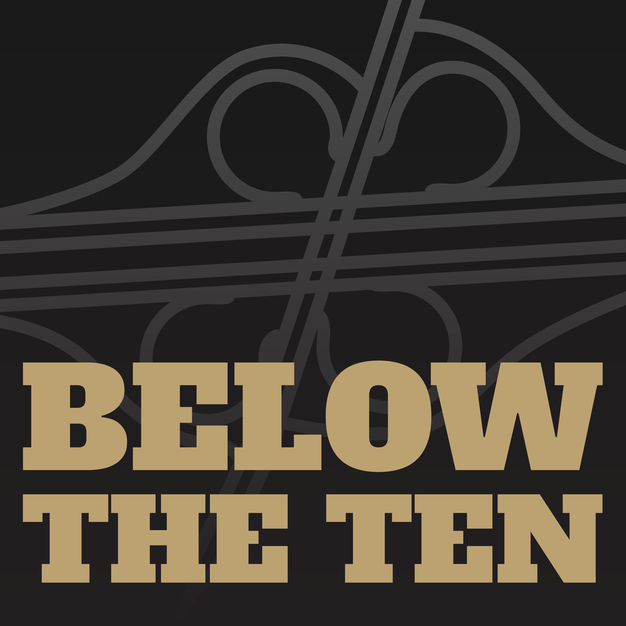 Below the Ten: Life in South LA
Below the Ten: Life in South LA
 Los Angeles Magazine: The Commute
Los Angeles Magazine: The Commute
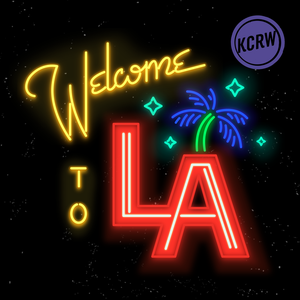 Welcome to LA
Welcome to LA
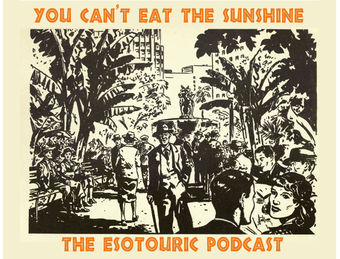 You Can't Eat the Sunshine
You Can't Eat the Sunshine
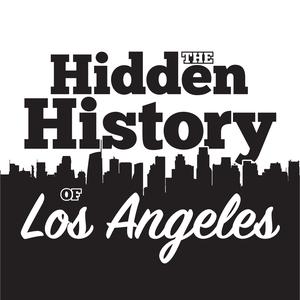 The Hidden History of Los Angeles
The Hidden History of Los Angeles
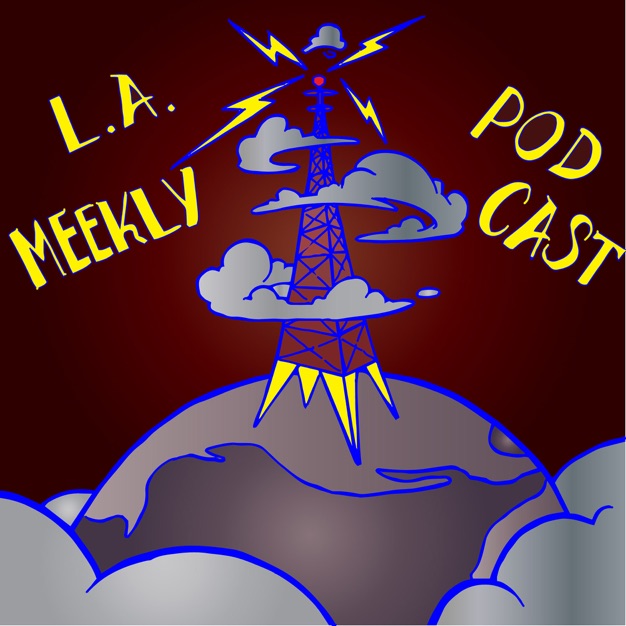 L.A. Meekly: A Los Angeles History Podcast
L.A. Meekly: A Los Angeles History Podcast